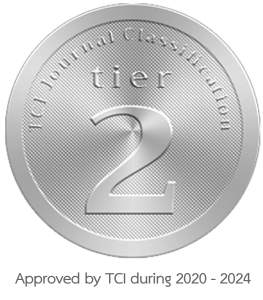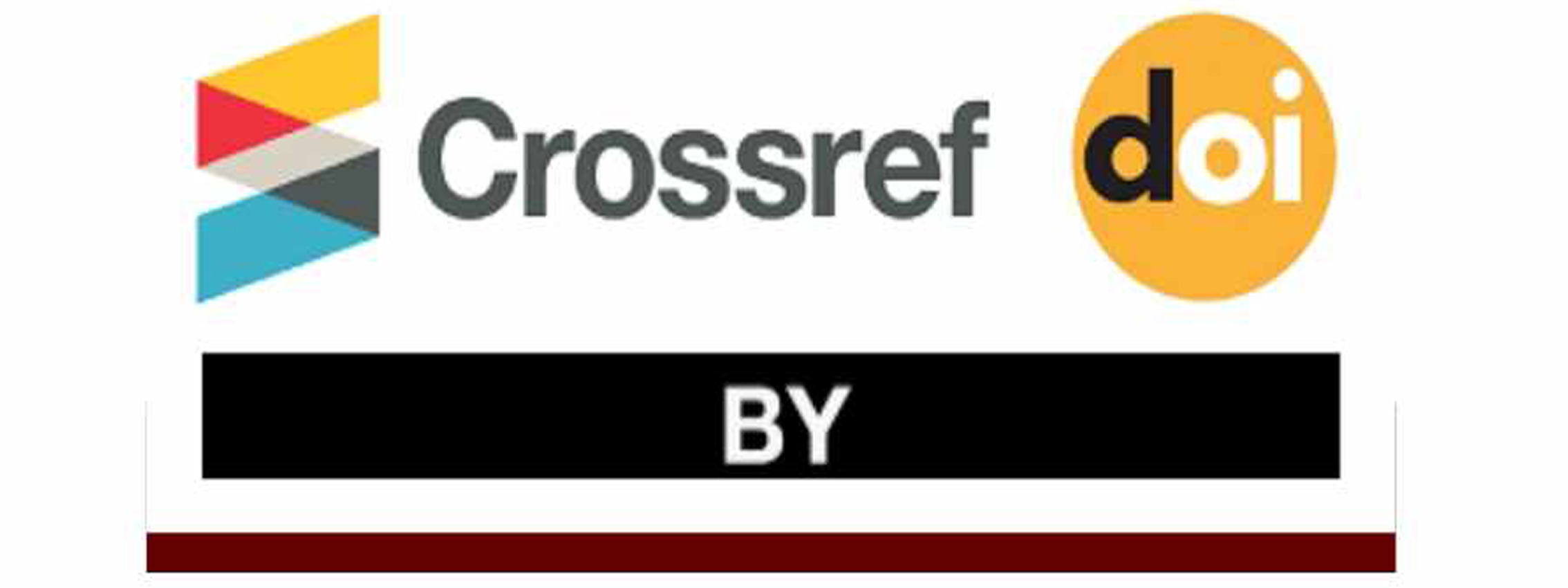The effects of game-based learning on enhancing collocational knowledge of the 11th grade students
DOI:
https://doi.org/10.62819/jel.2025.1107Keywords:
collocational knowledge, game-based learning, vocabulary retentionAbstract
This study investigated the effects of game-based learning on 11th grade students’ collocational knowledge, vocabulary retention, and learning satisfaction. 36 students from Suraphinpittaya School, selected via cluster random sampling, participated in a five-week intervention using five non-digital games. Data were collected through a pretest, a posttest, a delayed posttest, and a questionnaire. Quantitative analysis involved mean, standard deviation, and dependent t-tests, while qualitative data were analyzed by using content analysis. Findings revealed a significant improvement in collocational knowledge post-intervention. However, vocabulary retention showed no statistically significant difference between posttest and delayed posttest scores. Questionnaire responses indicated students’ high satisfaction, with game-based learning perceived as enjoyable, engaging, and promoting active participation.
References
References
Aldubai, N., & Almehdi, K. (2024). Collocation competence of the EFL learners and its relationship to their English language proficiency. ResearchGate. https://doi.org/10.13140/RG.2.2.23240.02562
Alroe, M., & Reinders, H. (2015). The role of translation in vocabulary acquisition: A replication study. The Eurasian Journal of Applied Linguistics, 1(1), 38-59. https://doi.org/10.32601/ejal.460588
Al-Sofi, B. B. M. A. (2024). The efficacy of game-based learning activities in enhancing L2 vocabulary acquisition among Saudi non-English majoring students. Stellenbosch Papers in Linguistics Plus, 68(1), 87-116. https://doi.org/10.5842/68-1-992
Benson, M., Benson, E., & Ilson, R. (1986). Lexicographic description of English. John Benjamins Publishing.
Boers, F., Eyckmans, J., Kappel, J., Stengers, H., & Demecheleer, M. (2017). Formulaic sequences and perceived oral proficiency: Putting a lexical approach into practice. Language Teaching Research, 21(3), 317-335.
Boonraksa, T., & Naisena, S. (2022). A study on English collocation errors of Thai EFL students. English Language Teaching, 15(1), 164-177.
Brown, D. (1974). Advanced vocabulary teaching: The problem of collocation. RELC Journal, 5(2), 1-11.
Bui, T. L. (2021). The role of collocations in the English teaching and learning. International Journal of TESOL & Education, 1(2), 99-109.
Conzett, J. (2000). Integrating collocation into a reading & writing course: Teaching collocation further development in the lexical approach. Language Teaching Publication.
Damayanti, R. H. (2014). Teaching vocabulary through word search puzzle to the fifth grade students of SDN01 Ngaglik Blitar in Academic Year 2013/2014 [Master’s thesis, State Islamic Institute of Tulungagung]. Repository of UIN SATU Tulungagung.
Ellis, N. (2003). Constructions, chunking and connectionism: The emergence of second language structure. In C. J. Doughty & M. Long (Eds.), The Handbook of Second Language Acquisition (pp. 63-103). Blackwell Publishing.
Fuscoe, K. (2018). Vocabulary: Teaching collocations. OneStopEnglish. https://www.onestopenglish.com/methodology/teaching-tips/ask-the-experts/vocabulary-questions/vocabulary-teaching-collocations1/146415.article
Hazar, E. (2020). Use of digital games in teaching vocabulary to young learners.
Educatia 21 Journal, 19(12), 99-104.
Hill, J. (2000). Revising priorities: From grammatical failure to collocational success. Language Teaching Publications.
Honarmand, R., Rostampour, M., & Abdorahimzadeh, S. J. (2015). The effect of game Tic Tac Toe and flash cards on zero beginners’ vocabulary learning. International Journal of Educational Investigations, 2, 27-41.
Howarth, P. (1998). Phraseology and second language proficiency. Applied Linguistics, 19(1), 22-24.
Huang, L.-S. (2001). Knowledge of English collocations: An analysis of Taiwanese EFL learners (ED465288). ERIC. https://eric.ed.gov/?id=ED465288
Kathinthong, C., & Adipat, S. (2022). The development of vocabulary learning using game-based learning for grade 13 students. Journal of Modern Learning Development, 7(4), 320–331.
Kongprab, T. (2019). Effects of digital game-based learning on vocabulary gain, retention, motivation and perceptions of Thai upper primary school students [Unpublished doctoral dissertation]. Prince of Songkla University.
Krennmayr, T. (2017). The role of collocations in language learning: Evidence from a learner corpus. Language Teaching Research, 21(4), 483-502.
Kunnu, W., Uiphanit, T., & Sukwises, A. (2016). The development of vocabulary memorization by using games. International Journal of Social Science and Humanity, 6, 419-422. https://doi.org/10.7763/IJSSH.2016.V6.686
Lackman, K. (2011). Teaching collocations: Activities for vocabulary building. Ken Lackman & Associates Educational Consultants.
Lakkham, L. (2020). The effects of collaborative games in teaching English collocation [Unpublished master’s thesis]. Srinakharinwirot University. http://ir-ithesis.swu.ac.th/dspace/handle/123456789/731
Lewis, M. (1997). Implementing the lexical approach: Putting theory into practice. Language Teaching Publications.
Lewis, M. (2000). Teaching collocation: Further development in the lexical approach. Oxford University Press.
Listyowati, R., & Hidayat, M. (2021). The use of game-based learning in teaching English vocabulary for junior high school students: Teacher perception. Lingual Journal of Language and Culture Lingual, 14(2), 26.
Lorenset, C. C., & Tumolo, C. H. (2019). Vocabulary acquisition in English as a foreign language: Digital gameplaying The Sims. Revista Linguagem & Ensino, 22(4), 1002-1019. https://doi.org/10.15210/rle.v22i4.16642
Mahmoud, A. (2005). The interlingual errors of Arab students in the use of English binomials. Journal of Documentation and Humanities, 15, 9-22.
Margaret, G. M. (2019). Effective vocabulary instruction fosters knowing words, using words, and understanding how words work. National Library of
Medicine, 50(4), 466-476. https://doi.org/10.1044/2019_LSHSS-VOIA-18-0126
McCarthy, M., & O’Dell, F. (2017). English collocations in use (2nd ed.). Cambridge University Press.
Memarian-Mojarab, M., & Farjami, H. (2019). Comparing the effect of teaching collocations versus single words on speaking fluency and accuracy. International Journal of Research Studies in Education, 8(3), 95-104. https://doi.org/10.5861/ijrse.2020.44009
Mongkolchai, A. (2008). A study of university students’ ability in using English collocations [Unpublished Master’s thesis]. Srinakharinwirot University.
Nation, P. (2015). Learning vocabulary in another language. Cambridge University Press.
Nguyen, N. V. (2021). Using word games to improve vocabulary retention in middle school EFL classes. Advances in Social Science, Education and Humanities Research, 621, 97-108. https://doi.org/10.2991/assehr.k.210226.012
Nizonkiza, D. (2017). Improving academic literacy by teaching collocations. Stellenbosch Papers in Linguistics, 47, 153-179. https://doi.org/10.5774/47-0-273
O’Dell, F., & McCarthy, M. (2009). English collocation in use advance. Cambridge University Press.
Pawley, A., & Syder, F. H. (1983). Two puzzles for linguistic theory: Native like selection and native like fluency. Language and Communication, 1, 191-226.
Pivec, M., Dziabenko, O., & Schinnerl, I. (2003, July 2). Aspects of game-based learning. In Proceedings of the 3rd International Conference on Knowledge Management (I-Know ’03), 304. Graz, Austria.
Rabu, S. N. A., & Talib, Z. (2017). The effects of digital game-based learning on primary school students’ English vocabulary. Innovative Teaching and Learning Journal, 1(1), 61–73.
Saleh, A. M., & Althaqafi, A. S. A. (2022). The effect of using educational games as a tool in teaching English vocabulary to Arab young children: a quasi-experimental study in a kindergarten school in Saudi Arabia. SAGE Journals, 12(1), 1-10. https://doi.org/10.1177/215824402210798
Sararit, J., Chumpavan, S., & Al-Bataineh, A. (2020). Collocation instruction in English writing classrooms at the university level in Thailand. Rajapark Journal, 14(35), 24–34.
Sararit, J., Chumpavan, S., Suksaeresup, N., Srinaowaratt, S., & Al-Bataineh, A. (2018). Collocation instruction through communicative activities to enhance 10th-grade students’ English writing ability. International Journal of Management and Applied Science, 4(10), 34-40.
Shamiyeva, R. (2018). Strategies for teaching vocabulary. World Science, 33(5), 41-43.
Sukkrong, J., & Teo, A. (2010). Learning achievement, retention, and attitude towards English vocabulary learning of students taught through games and conventional method [Master’s thesis, Prince of Songkla University]. PSU Knowledge Bank.
Sun, W., & Park, E. (2023). EFL learners’ collocation acquisition and learning in corpus-based instruction: A systematic review. MDPI, 15(17), 1-21. https://doi.org/10.3390/su151713242
Taheri, M. (2014). The effect of using language games on vocabulary retention of Iranian elementary EFL learners. Journal of Language Teaching and Research, 5(3), 544-549. https://doi.org/10.4304/jltr.5.3.544-549
Viera, R. T. (2017). The importance of vocabulary knowledge in the production of written texts: A case study on EFL language learners. ResearchGate, 30(3), 89-105.
Yahoui, N. (2012). The effectiveness of language games in improving learners’ vocabulary: The case study of first-year middle school pupils at Khaoula Bent El Azouar in Biskra [Master’s thesis, University of Mohamed Khider Biskra]. University Archives of Biskra.
Wasuntarasophit, S. (2015). Explicit instruction of collocations: An impact on learners’ use and perceptions. Journal of Humanities and Social Sciences, 11(2), 37-71.
Wu, S., Franken, M., & Witten, I. H. (2012). Collocation games from a language corpus. In H. Reinders (Eds.), Digital games in language learning and teaching (pp. 209–229). Palgrave Macmillan. https://doi.org/10.1057/9781137005267_11


















